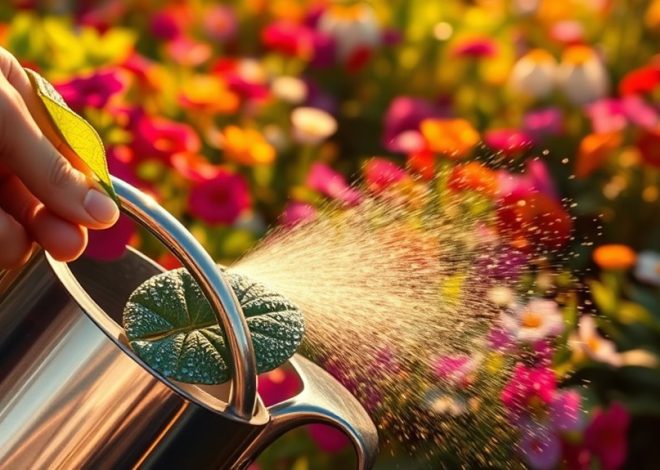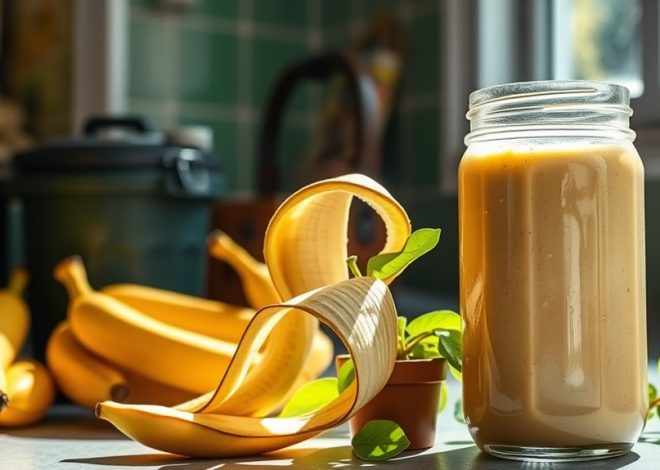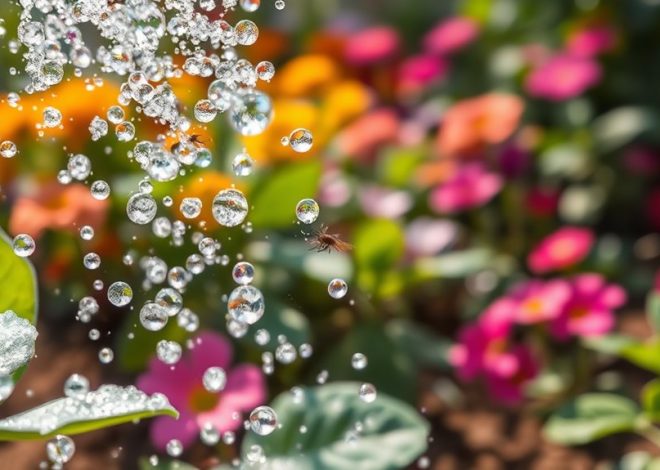
Never Buy Pesticides Again With This Homemade Garlic Spray
Never Buy Pesticides Again With This Homemade Garlic Spray
Why spend money on expensive pesticides when a simple kitchen staple can protect your garden? Garlic, known for its potent sulfur compounds, serves as an effective natural pesticide against common pests. With just a few ingredients and straightforward steps, you can create your own garlic spray. Understanding how to harness garlic’s properties can lead to a healthier garden while keeping beneficial insects safe. Curious about how to make and apply this eco-friendly solution?
Key Takeaways
- Homemade garlic spray effectively repels pests like aphids and whiteflies, eliminating the need for chemical pesticides.
- Simple ingredients like garlic, water, and soap make this spray cost-effective and easy to prepare.
- The antifungal properties of garlic help protect plants from diseases, offering dual benefits for garden health.
- Application is straightforward; just spray affected areas every 7-10 days for continued pest protection.
- Store the spray in a cool, dark place and use within two weeks for maximum potency.
The Benefits of Garlic as a Natural Pesticide
Garlic is often hailed as a powerful natural pesticide, and for good reason.
When you use garlic pest spray, you’re tapping into its potent compounds that repel a variety of garden pests, including aphids, spider mites, and whiteflies.
The sulfur compounds in garlic disrupt pests’ sensory mechanisms, making your plants less appealing.
Additionally, garlic’s antifungal properties can help protect your garden from certain diseases.
It’s non-toxic and environmentally friendly, making it an excellent alternative to chemical pesticides. Furthermore, homemade garlic pest spray can be easily prepared with just a few simple ingredients, ensuring you have a cost-effective solution at hand.
Ingredients Needed for Homemade Garlic Spray
Creating your own garlic spray requires a few simple ingredients that are easily accessible.
You’ll need fresh garlic cloves, typically about 4 to 6, which contain the potent compounds that deter pests.
Combine these with water—around 2 cups—to help extract the garlic’s natural properties.
A few drops of liquid soap can enhance the mixture’s effectiveness by allowing it to adhere to plant surfaces.
Optionally, you might add a splash of vegetable oil to increase potency.
With these ingredients, you can create an effective, eco-friendly pest control solution for your garden without relying on commercial pesticides. Additionally, garlic is known for its natural pest deterrent properties, making it an ideal choice for those seeking to maintain a healthy garden.
Step-by-Step Instructions to Create Garlic Spray
To make your own garlic spray, start by peeling the fresh garlic cloves and chopping them finely to maximize the extraction of their beneficial compounds. Next, combine the chopped garlic with water in a bowl and let it steep overnight. Afterward, strain the mixture through a fine mesh sieve or cheesecloth to remove solid particles. Pour the liquid into a spray bottle for easy application. A garlic spray can be particularly effective against DIY soap pest spray as a natural solution to combat garden pests. Below is a summary of the key steps:
| Step | Action |
|---|---|
| 1 | Peel and chop garlic cloves |
| 2 | Steep garlic in water overnight |
| 3 | Strain the mixture |
| 4 | Transfer to a spray bottle |
How to Apply Garlic Spray Effectively
How can you ensure maximum effectiveness when applying garlic spray?
First, choose a calm, dry day for application to prevent dilution from rain or wind. Spray in the early morning or late afternoon when beneficial insects are less active. Aim directly at the affected areas, focusing on the undersides of leaves where pests often hide.
Maintain a consistent distance of 12-18 inches from the plant surface for even coverage. Reapply every 7-10 days or after heavy rain. Additionally, using garlic as a natural pest deterrent can enhance the effectiveness of your spray by repelling a variety of garden pests.
Monitor your plants regularly to assess the spray’s effectiveness and adjust your approach as needed. Proper timing and technique are key to success.
Tips for Storing and Using Garlic Spray
After applying garlic spray effectively, proper storage and usage become important to maintain its potency.
Store your homemade garlic spray in a cool, dark place, ideally in a glass container to avoid chemical reactions.
Ensure the spray is tightly sealed to prevent odors from escaping or contamination.
Use it within one to two weeks for maximum effectiveness; the compounds can degrade over time.
Before each use, shake the container well to mix the ingredients.
Apply during cooler parts of the day to avoid leaf burn, and reapply after rain to ensure continued protection for your plants. Additionally, consider using garlic spray as a natural aphid repellent to further enhance your gardening efforts.
Other Natural Alternatives to Chemical Pesticides
If you’re looking for effective alternatives to chemical pesticides, consider neem oil, diatomaceous earth, and soap spray.
Each of these options offers unique benefits, from disrupting insect life cycles to creating barriers against pests. Additionally, using natural pest control methods in your garden can significantly enhance plant health and resilience.
Exploring these natural solutions can help you maintain a healthy garden while minimizing chemical exposure.
Neem Oil Benefits
Neem oil offers a powerful, natural alternative to chemical pesticides, making it a popular choice among gardeners seeking effective pest control methods. Its multifaceted benefits include repelling insects, disrupting their reproductive cycles, and promoting plant health.
| Benefit | Description |
|---|---|
| Insect Repellent | Deters various pests effectively |
| Fungicidal Properties | Helps combat fungal infections |
| Eco-Friendly | Safe for beneficial insects |
| Plant Growth Booster | Encourages robust plant development |
Diatomaceous Earth Usage
While neem oil provides effective pest control, diatomaceous earth (DE) serves as another natural alternative that gardeners can utilize.
DE consists of tiny, fossilized algae that disrupt the exoskeletons of insects upon contact.
When you sprinkle DE in your garden, it creates a barrier that deters pests like ants, cockroaches, and slugs.
For optimal results, apply DE in dry conditions, as moisture reduces its effectiveness.
Reapply after rain or watering.
Remember, DE targets insects without harming beneficial organisms, making it a safe option for your garden.
This eco-friendly solution allows you to maintain a healthy, sustainable environment without chemicals.
Soap Spray Effectiveness
Have you considered using soap spray as a natural pest control method in your garden?
Soap spray, typically made from liquid dish soap and water, effectively targets soft-bodied insects like aphids and spider mites.
The soap suffocates pests by disrupting their outer protective layer, leading to dehydration.
While it’s less harmful to beneficial insects, you should apply it cautiously, ensuring you don’t spray on blooming flowers.
Test a small plant area first to avoid potential leaf damage.
Regular applications may be necessary for ongoing infestations, but soap spray can be an efficient, eco-friendly alternative to harsh chemical pesticides.



